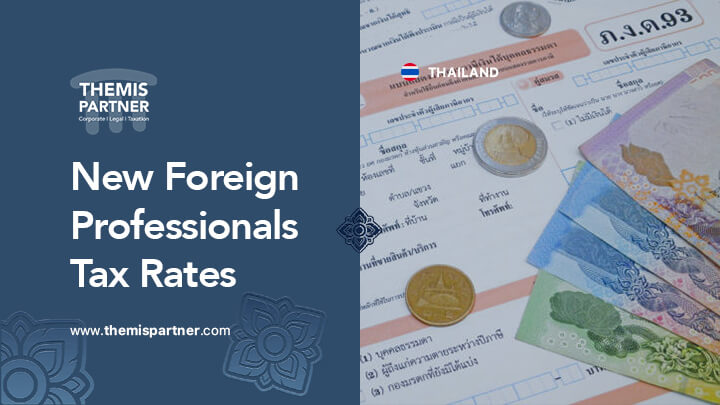Thailand’s Smart Electronics Industry
Electrical and Electronics Industry (E&E) In the face of a worldwide pandemic, Thailand’s export of electrical and electronic products is expected to exceed USD 34 billion in 2020. Hard disk drives have continued to drive forward export in this area, accounting for around a quarter of total E&E export in 2020. Apart from HDD, integrated circuits accounted for 19% or roughly USD 6.7 billion, followed by semiconductor, transistor, and diode at approximately 7% or approximately USD 2.4 billion. Looking at domestic manufacturing, Thailand is a large producer of various regularly used household appliances, such as printers, air conditioners, compressors, and washers, in addition to the goods mentioned above. They are manufactured by a network of approximately 2,623 firms of varied sizes. This industry employs 750,000 people in total, making it one of Thailand’s most important industries.
The success of the E&E sector is made possible by an upstream industrial supply chain that is full and resilient. The semiconductor business in Thailand, in particular, is widely renowned for its providing of assembly, packaging, and testing, allowing it to provide the E&E industry at a cheap rate. Furthermore, the presence of numerous significant downstream industries contributes to the appeal of Thailand’s E&E industry. For example, as Thailand’s automobile industry shifts toward contemporary electric vehicles, more electronic parts and equipment will undoubtedly be required. Thailand is the world’s 11th largest vehicle maker, thus demand from this industry will be substantial. A long history of industrial development in the electronic business: thanks to the Thai government’s strong and consistent support dating back to the 1970s, the E&E value chain is consequently active, accounting for more than 10.4 percent of Thailand’s GDP in 2020. Furthermore, a whole ecosystem of supporting sectors, such as iron and steel, chemicals, plastics, or glass manufacture, adds to the ease of procurement for parts and materials. According to a JETRO (2019) study of Japanese firms, 45 percent of raw parts/materials for electronic business production are available locally in Thailand.
ℹ️ If you want to start a smart electronic business, we advise you to ask a lawyer. This will allow you to follow a simple company registration process and to quickly obtain the necessary documents and licenses for your activity.

Semiconductor
The Thai semiconductor industry has become the key sub-sector impacting downstream production as a major manufacturing base in the E&E sector’s worldwide supply chain. In 2020, the semiconductor sector will account for around 7% of total output destined for Thai electronics export markets. However, the majority of semiconductors are supplied by local electronic business. They are regarded as an important component in the fabrication of Integrated Circuits (ICs), which are frequently used in electronics, computers, and mobile phones. As a result, the semiconductor sector is strongly linked to worldwide demand for technological products. Work from home rules increased the demand for electronics equipment, causing the distribution of semiconductors to increase by up to 6%. The continuing coronavirus epidemic is also projected to boost demand for Thai semiconductors. Stars Microelectronics Public, Ecotech-Solar, INDEFF, and Siam IKK are some of Thailand’s leading semiconductor and semiconductor equipment manufacturers. Due to the E&E industry’s experience with increased demand, the Thailand Board of Investment authorized an improved incentive for the semiconductor sector in June 2021 in order to attract more investors, boost production, and maintain a stable supply chain.
Printed Circuit Board Industry (PCB)
The Printed Circuit Board (PCB) is an important fundamental component of electronic circuits that serves as a location to house parts as well as route the electrical signals of the numerous electronic devices on the circuit to keep devices linked and functional. In terms of PCB market value, the worldwide PCB industry is estimated to be worth 76.9 billion USD by 2024. The Thailand Board of Investment accepts 15 PCB projects with a total investment value of 244.01 USD in 2020. The projects include the following items: flexible PC or multi-layer PCB or components, printed circuit board assembly (PCBA), and other PCB that have been identified as Thailand’s main PCB products. Fischer, Kyoden Group, Circuit Industries, She Feng Enterprise (Thailand) Co., Ltd., Autech Thailand, Draco PCB Public Company Limited, and MMC Global are examples of prominent players in Thailand’s PCB sector. More, however, is constantly required to plan for future expansion.
Why Thailand to start an electronic business?
1. A complete supply chain
Thailand’s E&E supply chain has a lengthy history. Since the 1970s, the Thai government has consistently backed the industry with different sorts of incentives and facilitative measures. As a result, the business has grown to become one of Southeast Asia’s most vibrant electronic business. A strong network of supporting sectors, such as metal, plastic, and rubber manufacturing, offers easy and cost-effective procurement, complementing Thailand’s position as a top investment destination for the smart E&E industry.
2. Growing Demand for smart E&E in other products
The ASEAN economy generates over USD 3 trillion in production every year, making it one of the world’s largest markets. Growing customer demand will drive the development of new goods not only in the E&E category, but also in other sectors/items that are becoming digitally changed, such as the automotive industry, where digital components are replacing analog equipment. Because Thailand is also the world’s 11th largest automobile producer, E&E makers will consider Thailand not just as a manufacturing base, but also as a prospective market.
3. Government and BOI support for electronic industry
The Thailand Board of Investment provides a variety of extremely appealing investment incentives, including exemption from import duties on machinery, exemption from import duties on raw materials used in export manufacturing, and other non-tax incentives such as BOI business facilitation services. Furthermore, the incentives are extremely competitive in comparison to the rest of ASEAN, particularly for goods such as R&D and innovation to produce products. Some measures, such as corporate income tax exemption, can be used to incentivize such behavior for a maximum of eight years.
Set up your company in the E&E industry
Receive BOI incentive as corporate income tax exemption up to 8 years and Exemption of import duty on machinery and raw or essential materials used in manufacturing export products.
Business Opportunities for electronic business
According to Thailand’s trade report from the Ministry of Commerce, electronics items, such as automobile, computer, and electronic parts, account for a major amount of Thailand’s total product export. This demonstrates Thailand’s potential in the E&E and PCB industries. The following are a few reasons why Thailand should be a top E&E investment location.
1. Key Global Levers
Increasing demand for smart devices throughout the consumer and industrial landscape: for example, as 5G deployment progresses around the world, IoT devices will soon become prevalent; and Thailand will lead in this area as one of the first countries in the world to begin commercial operation of 5G. In terms of non-consumer applications, smart-city development and the advent of megacities, big data, and digital transformation will need the widespread deployment of smart devices.
2. Location & Market Access
Thailand has access to air, land, and sea transportation, making it simple to import and export goods and commodities. It is also close to China and India, the world’s second and sixth largest economies, respectively. For international businesses, Thailand’s flagship Special Economic Zones, such as the Eastern Economic Corridor (EEC), offer lucrative incentives and world-class infrastructure, allowing you to gain east access to the international market while remaining close to Thailand’s largest industrial seaport. Thailand has an extensive network of trade agreements with 18 nations and jurisdictions through a network of 13 Free Trade Agreements (FTAs).
3. Human Resource in Related Fields
In 2020, Thailand’s entire workforce in the electrical and electronics sector will be 752,539 people. This does not include new graduates in relating fields from various educational levels: diploma, high vocational education, and bachelor which make up 80,000 people approximately. This shows the potential of Thailand for electronic business in the smart electronics industry.
4. Ease of Doing Business and Export Potential
Thailand is ranked 21st in the world and third in ASEAN for ease of doing business. Thailand has steadily improved in this area during the last ten years. More significantly, the BOI will work tirelessly to ensure that your business operations and investment procedure go as smoothly as possible.
Electronic Business: BOI and Government
Support BOI Incentives
The Thailand Board of Investment (BOI) provides investment incentives for the electronics sector, including duty exemptions on machinery and raw materials used in production for export, as well as non-tax incentives. Furthermore, BOI provides CIT exemption as follows.
Supports from Public Organizations
The agencies listed below are important government players in Thailand’s smart electronics industry. They will provide a variety of assistance to guarantee the development of Thailand’s smart electronics sector. E&E Intelligence Unit (EIU): promotes and supports the development and export of electrical and electronic goods, as well as providing as a resource for industry information. The National Electronics and Computer Technology Center (NECTEC) conducts, supports, and promotes the advancement of electronics and computer technologies via research and development. Thailand Science Park (TSP): research centers offer services ranging from university and technology center knowledge transfer to financial help and company incubation. Thai Organic & Printed Electronics Innovation Center (TOPIC): TOPIC supports and develops Thailand’s Organic and Printed Electronics Industry through R&D, One-Stop-Service, and making Thailand the site of O&PE infrastructure. Thai Embedded Systems Association (TESA): Promotes the growth of Thailand’s electronics design sector by developing a qualified and inventive engineer supply pool.
Are you eligible to register an innovative electronic company under BOI scheme?
Ask your detailed question and receive legal advice in minutes from a lawyer that specializes in corporate law










